“I don’t trust priests; they’re all spies.”
|
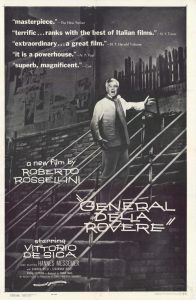
Synopsis
An apolitical con-artist (Vittorio De Sica) impersonates a recently killed Resistance leader (“General Della Rovere”) in order to save his own life.
|
|
Genres, Themes, Actors, and Directors:
- Character Arc
- Con-Artists
- Folk Heroes
- Italian Films
- Mistaken or Hidden Identities
- Political Awakening
- Resistance Fighters
- Roberto Rossellini Films
- World War II
Response to Peary’s Review:
As Peary notes, this historical drama may be overlong and disjointed at times, but is nonetheless a powerful depiction of director Roberto Rossellini’s conviction that “every Italian has the responsibility to share his countrymen’s misery.” Indeed, because Rossellini spends the entire first hour of the movie showing us Grimaldi (De Sica) as he sells out his fellow Italians to the Gestapo — brusquely trading their lives for cash — it’s especially gratifying to witness his change of heart once he’s in prison. Although Grimaldi has nothing to gain by helping the Resistance movement, he comes to recognize the true importance of solidarity in the face of evil. By the end of the film, you’ll feel nothing but compassion and pride for this reformed swindler, who “becomes worthy of the man whose name he has stolen.”
Redeeming Qualities and Moments:
- Vittorio De Sica’s strong performance as both the cynical swindler and the noble General
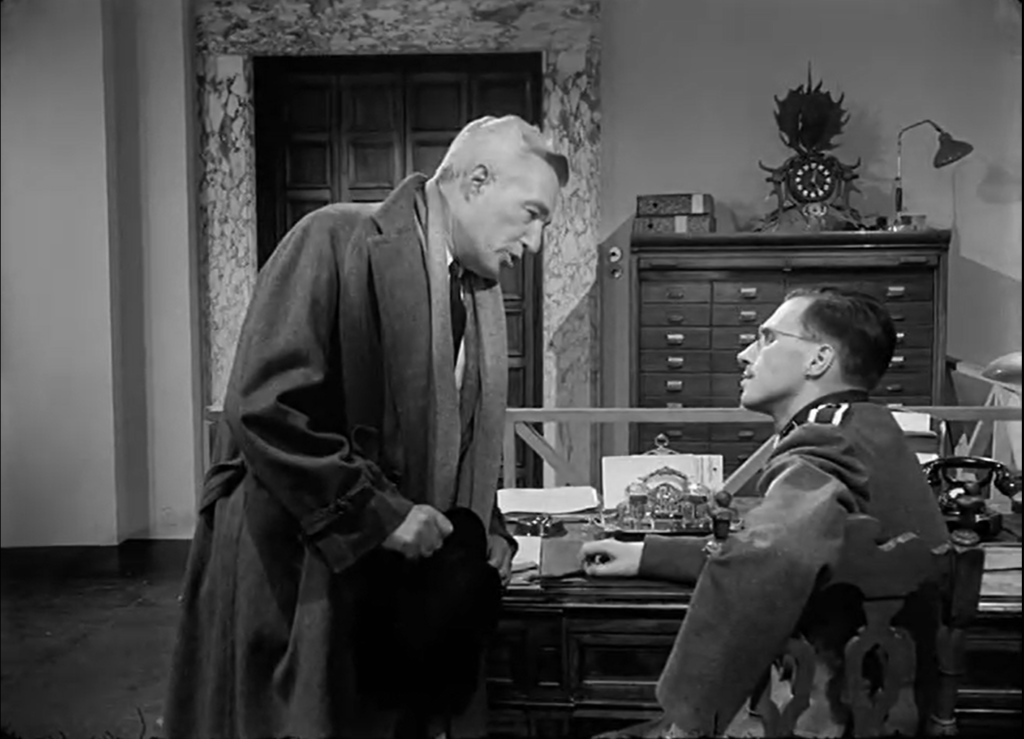
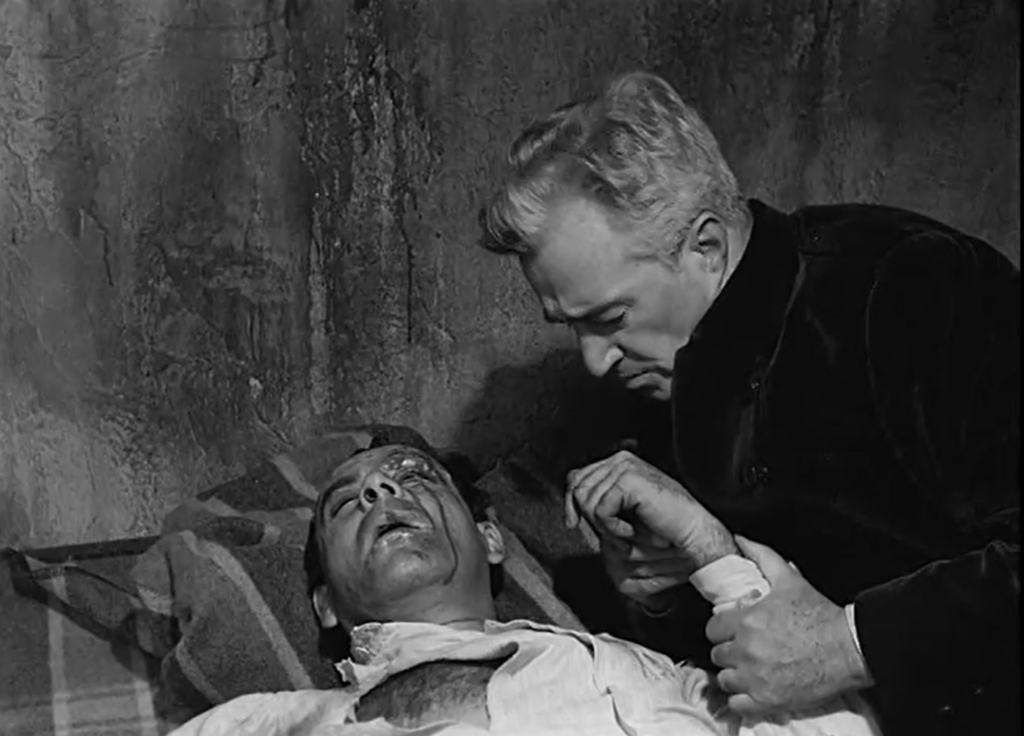
- Many powerful, tense moments, both before and after De Sica enters prison
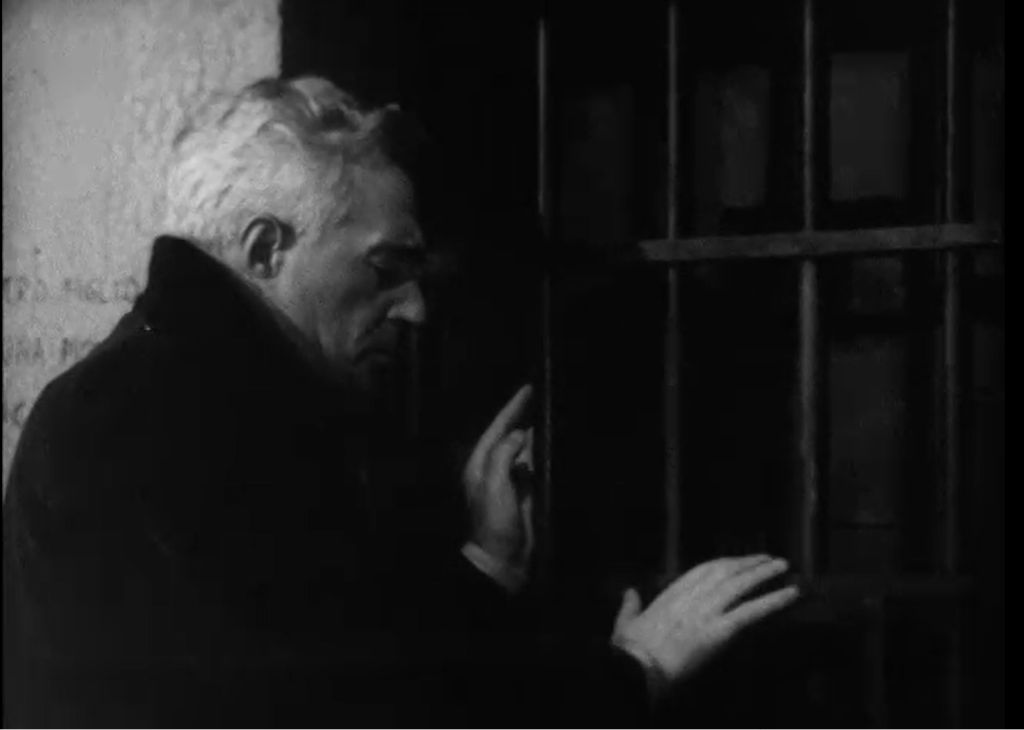
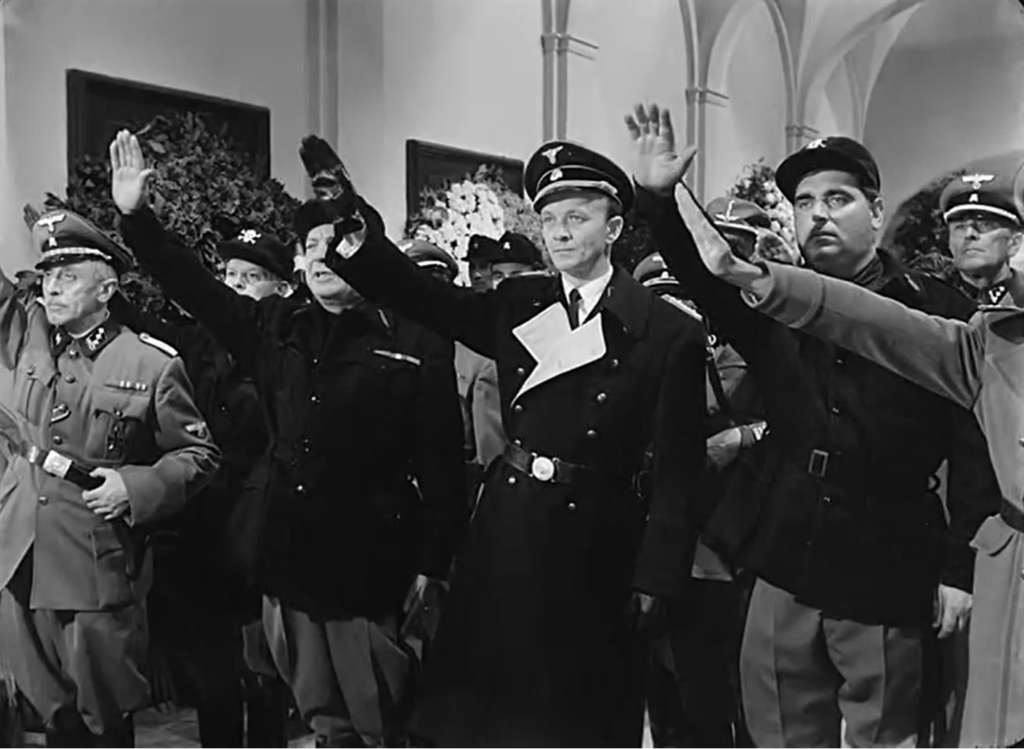
- A fascinating portrait of newly won political consciousness
Must See?
Yes. Though it’s long, unevenly paced, and considered by many to be one of Rossellini’s lesser efforts, this film remains a stirring wartime drama.
Categories
Links:
|
One thought on “General Della Rovere (1960)”
First viewing. A tentative once-must, for its place in cinema history.
I’m a bit surprised that this is seen as one of the director’s lesser efforts – I found it (generally) to be one of his most accessible films, mainly because the narrative seems to have an urgency that I often find lacking in a Rossellini film. (I’m not a huge fan of his work.)
That said – yes, the film feels slow and, at times, disjointed. There’s a definite power in the film, which rises and falls – so at times it grabs and at times it seems to slow to a crawl.
However, first and foremost, the film has real value as a war document – it shows the kinds of things ordinary people might have felt drawn to do only because it was wartime.
The film does require patience; I wouldn’t call it an easy watch. But I’d recommend it to people who have never seen a Rossellini film – it has enough thrust to work as the type of film it sets out to be.